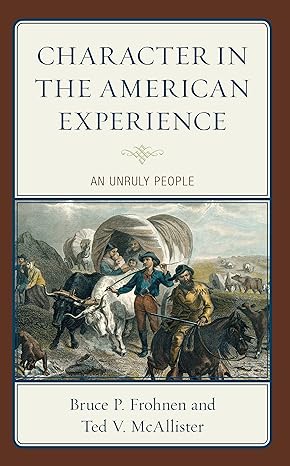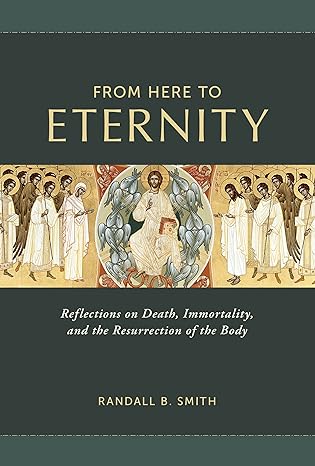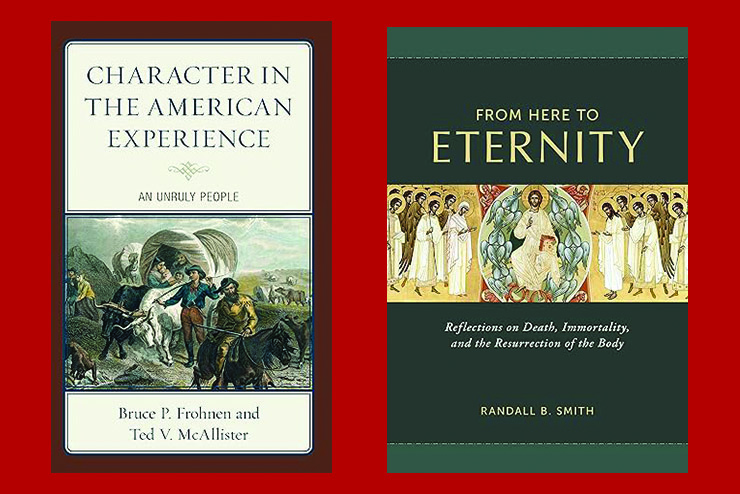
Character in the American Experience: An Unruly People, by Bruce P. Frohnen and Ted V. McAllister (Lexington Books; 208 pp., $45.00). The authors of this concise historical polemic challenge the reigning propositional nation claptrap early in their introduction. Wading across the Rio Grande mumbling something about “All men are created equal” hardly makes one an American. Instead, “Our politics flow from our culture and our sense of who we are as persons and people,” according to Frohnen and McAllister. They ask how the U.S. sank so low that “so many in positions of power and authority … are calling for our society and people to be replaced?”
This book builds on David Hackett Fischer’s seminal history of the British folkways that underpin modern American culture, Albion’s Seed. These “deeper historical currents” take precedence over changing demographics and shifting political attitudes in determining a nation’s culture. The book shows how America’s original settlers had vastly more power than immigrants in shaping America, from its common English language to its British legal system and Protestant religion. Protestantism came in several flavors, so Americans valued tolerance as “a practical necessity rather than an imposed ideal.”
America’s vibrant republic of churches, towns, and private associations began to wane just as industrialism waxed in the 19th century. Despite their economic benefits, the railroads’ concomitant corruption “undermined … family-centered independence” as well as the “relative balance of power among varied institutions and associations.” Progressives later leveraged Washington’s power to further destroy organic communities. For example, the progressives’ temperance efforts may have failed to eradicate liquor. But the movement’s “greatest triumph,” according to the authors, resulted when their puritanical “ideology of public morals … substituted national laws for local social action.”
FDR, “a man of few thoughts and no principles,” later exploited the Depression to perfect the national state. Most detrimental of all, his Social Security legislation erased intergenerational duties of familial support, diverting “Americans’ attention from those around them to political structures in Washington.” The snide adherents of “social justice” arrived in the ’60s, mocking the intermediate associations that “shape the soul of a self-governing people.”
How do we recreate a functional country when ours is no longer bound by custom, language, or religion? The authors hope for a “self-respecting, honorable, and self-governing people” who can “begin anew.” Good luck, America.
(Mark G. Brennan)

From Here to Eternity, by Randall B. Smith (Emmaus Road; 296 pp., $27.95). As euphemisms attest (“He passed,” “Her transition”), we Americans are reluctant to confront death. We spend billions on the ill, decrepit, and dying, but failing bodies make us uncomfortable and are often closeted away. The preposterous COVID lockdown made confinement into an almost holy duty, imparting a dreadful public lesson.
Smith investigates this topic with, one might say, deadly seriousness. Excepting birth, its counterpart, what is as everyday as death? If “in the long run we’ll all be dead,” the present—the short run—is the threshold to the long run. In the certain knowledge of dissolution—our own and others’—how should we live? What is the meaning of life in the face of death?
Smith displays tremendous erudition. Philosophy and theology students, pressed to finish a paper, might put his overviews, quotations, and footnotes to good use. Yet everything is set out plainly, and the book is suitable for all thinking readers, teachers, clergymen, and especially for those ill in hospitals or hospices, their families and caregivers, and, finally, for the grieving.
Smith surveys fundamental attitudes toward dying—belief, Christian or other, in life after death, and rejections of such belief. Among his ancient sources are Homer, Plato, Epicurus, Cicero, and Epictetus. Epicurus, discrediting the afterlife and the concept of an immortal soul, recommended that men ignore their fate and try to live well—that is, ethically, not hedonistically. The Stoic Epictetus, likewise denying the afterlife, urged his followers not to fear death, since it was beyond their experience and control. Among modern responses, Smith notes Unamuno’s mild skepticism and William James’s unorthodox belief in spiritual survival, as well as the complete disbelief evinced by Nietzsche and Heidegger. Subsequent chapters discuss Christian positions on embodiment, dying, eternity, the meaning of Christ’s resurrection, the Eucharistic presence, the communion of saints, the Christian understanding of Heaven, and the “end times” and Second Coming.
And then the novelty of the post-Christian transhumanists, who say man will soon not die, but achieve a previously unimaginable transcendence by merging consciousness with technology. Through the nanotechnological creation of replacement bodies, ultimately inorganic humanoid robots will be indefinitely renewable. Worse than Faustian; terrifying, monstrous.
(Catharine Savage Brosman)

Leave a Reply